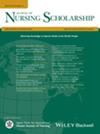Caregiver Contribution to Patient Self-Care in Multiple Chronic Conditions in a Low-/Middle-Income Country
Abstract
Introduction
Caregivers make an essential contribution to the self-care of patients with multiple chronic conditions (MCCs), but no studies have described caregiver contribution (CC) and caregiver self-efficacy in contributing to patient self-care in low-/middle-income countries (LMICs). This study aimed to describe the CC to patient self-care and caregiver self-efficacy of patients affected by MCCs living in a low-middle-income country such as Albania.
Design
A Multicenter cross-sectional study design was used.
Methods
A sample of 376 Albanian caregivers was enrolled if identified by the patient with MCCs as the primary unpaid informal caregiver in outpatient settings in Albania. The Caregiver Contribution to Self-Care of Chronic Illness Inventory (CC-SCCII) and the Caregiver Self-Efficacy in Contributing to Patient Self-Care Scale (CSE-CSC) were used to measure the CC to patient self-care maintenance, monitoring, and management and the caregiver's confidence in their ability to contribute to patient self-care, respectively.
Results
Participants' mean age was 48.10 (15.14) years. Most of the caregivers were women (67.9%), adult children (53.2%) or spouses (46.8%) of the patient. Regarding the CC to self-care maintenance, inadequate behaviors were observed in caregiver recommendations for physical activity (41%) and stress management (33%). In the CC to patient self-care monitoring, inadequate behaviors in recognition of symptoms were reported (20%) by caregivers. In the CC to patient self-care management, inadequate behaviors were found in caregiver ability to recognize reflecting on the effectiveness of the remedy used to manage signs and symptoms of the patient's illness (60%) and in alerting the healthcare provider (25%). Caregiver self-efficacy was lower in the ability to persist in finding a remedy for symptoms of the person for whom they care (27%) and to evaluate the effectiveness of a remedy they used (27%).
Conclusion
We found, on average, adequate CC to patient self-care maintenance, monitoring, management behaviors, and caregiver self-efficacy in contributing to patient self-care of MCCs, but specific CC behaviors were found to be insufficient.
Clinical Relevance
This study described CC and caregiver self-efficacy in contributing to patient self-care in a low-middle-income country. This knowledge will enable healthcare professionals to identify inadequate caregiver contributions to self-care and strengthen them through targeted educational interventions, thus optimizing the scarce resources available in these contexts.




 求助内容:
求助内容: 应助结果提醒方式:
应助结果提醒方式:


